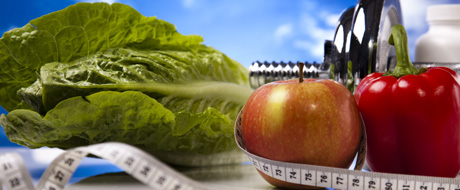It is common knowledge that aerobic respiration results in the production of Reactive Oxygen Species (ROS) and that endogenous cellular and subcellular antioxidant systems exist to deal with excess ROS before they can exert harmful effects. Indeed, under ideal age, health and environmental conditions, the cell’s natural systems are well prepared to deal with oxidative stress but aging, disease and lifestyle can all act to upset that natural balance, reducing the cell's ability to respond to stress resulting in deteriorating health. Nutritionists and exercise physiologists are keenly aware of this and are testing whether interventions such as antioxidant supplementation, consumption of functional foods and ethnomedicinal products (herbal remedies) or performing physical exercise can lead to more healthy outcomes. Biomarkers of oxidative stress play an important role by providing researchers with specific indices of baseline and post-intervention outcomes.
The accompanying citations are provided as a representative sampling of the types of wellness-related research being supported by NWLSS™ products. Additional works are available by performing a keyword search on our Citations page.
Evaluation of biological activities of a groundnut ( Apios americana Medik) extract containing a novel isoflavone
This research looked at the ability of the isoflavone genistein-7-O-gentiobioside to function as an antioxidant or induce antioxidant activities in a cell model for oxidative stress. The authors used product NWK-GSH01 to measure glutathione (GSH) and were able to show that the extract caused up regulation of GSH.
Takashima, Mizuki et al Food Chemistry, 138 (1), p.298-305, May 2013 (new window)
Bison meat has a lower atherogenic risk than beef in healthy men
This study compared the effect of bison and beef consumption various biomarkers associated with human health and disease. Among them, plasma levels of protein carbonyl were tested using product NWK-PCK01. Protein carbonyl levels were found to be higher in the group eating beef than for those consuming bison.
John McDaniel et al, Nutrition Research, Volume 33, Issue 4, April 2013, Pages 293–302 (new window)
Effects of Soya Bean Oil and Vitamin C on Lipid Peroxidation and Antioxidant Biomarkers in Ethanol-Induced Oxidative Stress in Wistar Rats.
This study used a rat model of chronic alcohol consumption to investigate the effects of alcohol on biomarkers of oxidative stress and the ability of soya bean oil and vitamin to ameliorate those effects. The authors measured serum levels of catalase, superoxide dismutase and glutathione peroxidase using products NWK-CAT01, NWK-SOD01 and NWK-GPX01 respectively. Ethanol consumption was shown to cause an increase in each of the antioxidants tested. Treatments with soya and vitamin C were shown to partially mitigate the increase.
Mallo, J. M., et al, IOSR Journal of Pharmacy and Biological Sciences, Volume 4, Issue 6 (Jan. – Feb. 2013), PP 28-31 (PDF)






